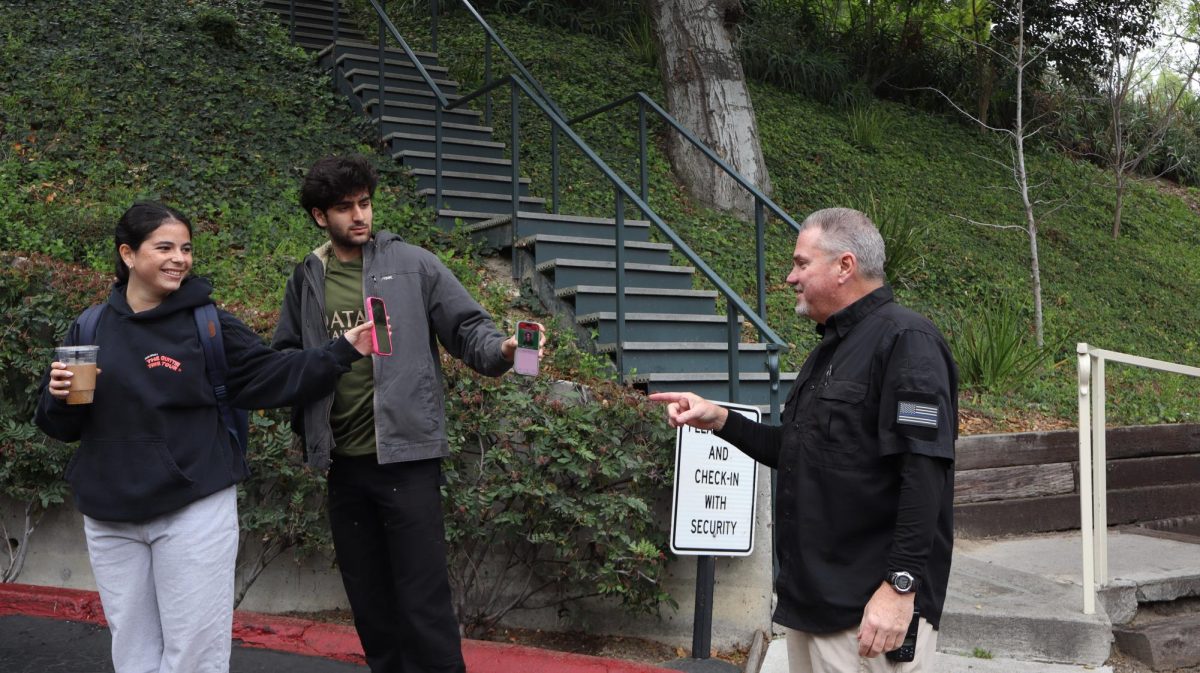By Mary Rose Fissinger
The Harvard-Westlake B Team qualified for the final round of the Regional Science Bowl Competition Feb. 26 at the Los Angeles Department of Water and Power building. As reward for their runner-up finish, they received $2,000 for the school and $750 in scholarship money each.
The team consisted of captain Hank Adelmann ’11, Jeffrey Bu ’12, Rhett Gentile ’13, Brian Jun ’13 and Jack Petok ’11, with Jun serving as the alternate. Math and Computer Science teacher Jacob Hazard coached them.
After the seven rounds of play in the morning, the B team was tied for first in its division. It then entered into the double elimination tournament. It was defeated in the second round, and entered the consolation bracket.
The B Team won its next five rounds, including an extremely close match against Venice High which was forced into a five question tie-breaking round when Adelmann correctly answered a bonus question worth 10 points.
“Several things contributed particularly to our success, mostly the deadly focus Jack Petok went into after we had some less than great rounds in the round robin,” Adelmann said.
Entering the championship round from the consolation bracket, the team would have had to defeat the opposing team, defending Regional Champions North Hollywood, twice in order to claim the regional title. However, it lost the first round of the Championships, and North Hollywood claimed its 12th Regional Championship in 13 years.
“It felt like the miracle on ice,” Adelmann said. “We came into the DWP with the hope to scrape by getting out of the round robin, and we ended up versus the national champs in the finals. I’m really proud of our team and how everyone did. It’s a tad bittersweet though, Jack and I are seniors and wish we could go back for another try next year.”
The Harvard-Westlake A Team, consisting of captain Jeffrey Sperling ’11, Colin Campbell ’12, Justin Ho ’12, David Lim ’13 and Saj Sri-Kumar ’12 and coached by math teacher Kevin Weis, finished the morning rounds in first place in their division, but lost the first two rounds of double elimination.
Last summer, Sperling attended the Summer Science Program in Santa Barbara, where he tracked the location of a near-earth asteroid. He said SSP helped him in the competition.
“Intellectually, my favorite part of the program was the astronomy I learned,” Sperling said. “I was able to answer a lot of astronomy questions at the competition that I otherwise wouldn’t have. It also prepared me in the sense that it was another program that reinforces intellectual curiosity and scientific inquiry.”
During the competition, the questions are posed by the reader and identified by topic as either multiple choice or short answer. Whichever team answers the toss-up question, worth 4 points each, correctly is then asked a bonus question on the same topic, worth 10 points. The opposing team has no opportunity to answer the bonus question, but there is a time limit of 20 seconds.
The teams are made up of specialists. For instance, on the B team, Adelmann was the Biology specialist, Petok was the Chemistry specialist, Bu was the Physics and math specialist and Gentile was the energy specialist, but they were all able to answer questions in every area.
Petok partially attributed the team’s success to the close bond that developed between the members and the rhythm they were able to achieve.
“We really felt like brothers, and when we got to the competition it was like telepathy,” he said. “We knew who would answer which question and in how much time. It was like magic, but this is science, so there is no magic.”






























